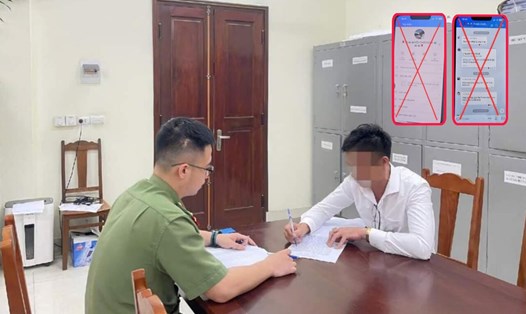I watched a funny clip on Tiktok about a victim who fell off a motorbike and had to be rushed to the hospital. When the family asked, the doctor sighed and said: “We are helpless”. So the family cried like crazy, called home to set up a tent, and planned to hold a funeral. But it turned out that when the doctor said “we are helpless”, he really meant “our hands are helpless”, not in the sense of giving up, failing, or giving up.
The use of slang on social media has become a popular phenomenon, especially among young people in Vietnam. Initially, slang was created to express personality, creativity and help convey messages quickly and humorously. However, the use of slang is increasing, sometimes abused and appears in all contexts, from intimate conversations to formal communication. Even TV shows, movies, or advertisements incorporate slang to create closeness with young people.
So, recently, a debate has arisen among teachers and the whole society about an exam for students to write about the current “banner” lifestyle. What is the figurative meaning of “banner”? Does everyone understand the “banner lifestyle”? And finally, should it be included in an exam?
Overuse of slang can obscure the sophistication of Vietnamese, a language rich in cultural values and imbued with national identity. When slang becomes the main language of communication, pure Vietnamese words are at risk of being forgotten or having their meanings changed, thereby reducing the purity and standards of Vietnamese.
Some slang words can be confusing, as their original meaning is often only understood by people within a particular group or generation. This can create a communication barrier between generations, as older people find it difficult to understand or feel alienated by the language of younger generations.
To protect and promote the purity of Vietnamese, each individual should use slang selectively, retain pure Vietnamese words in daily communication, and know how to consider when communicating in different contexts. Schools and media agencies can step in, encouraging the protection of pure Vietnamese, while social media platforms can build communication campaigns towards the sustainable value of the language.
Because without awareness, slang will become a "hot" issue that affects generations and, further, the culture of the country.









